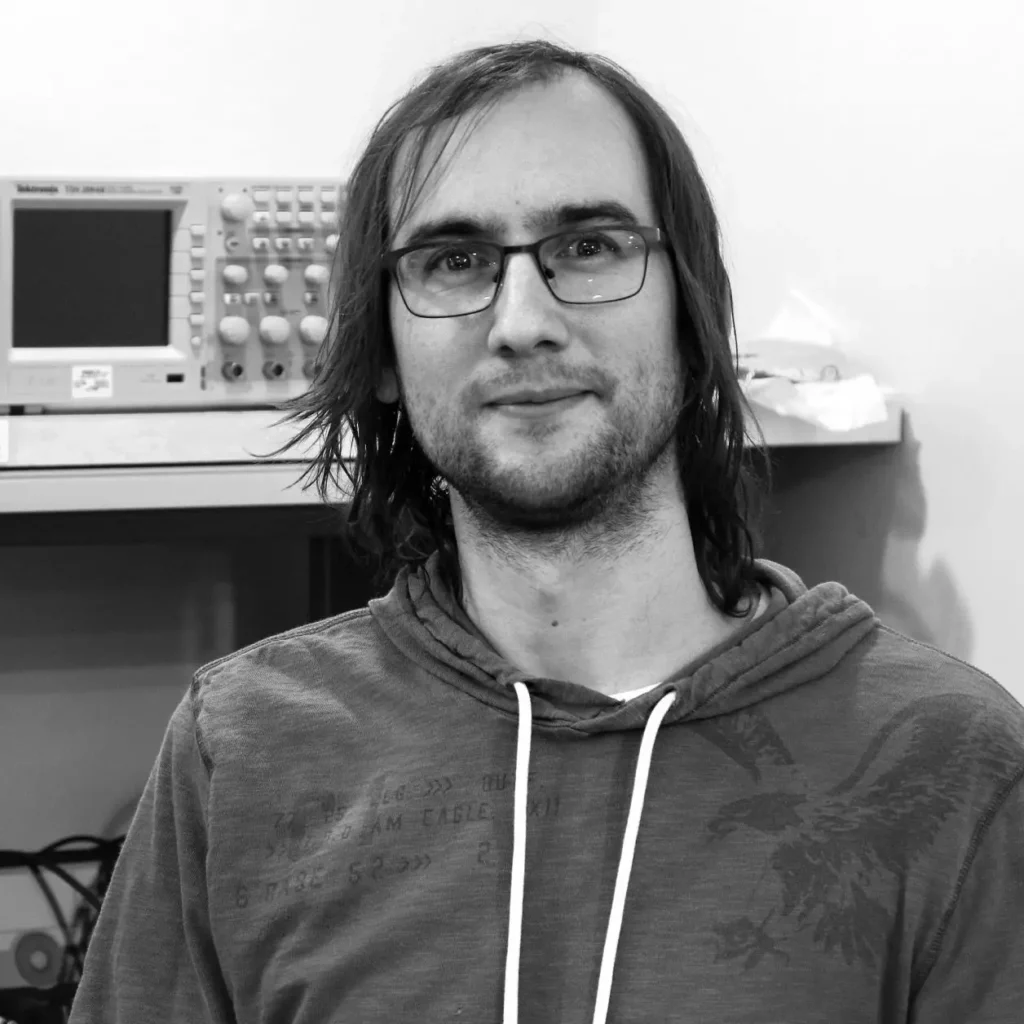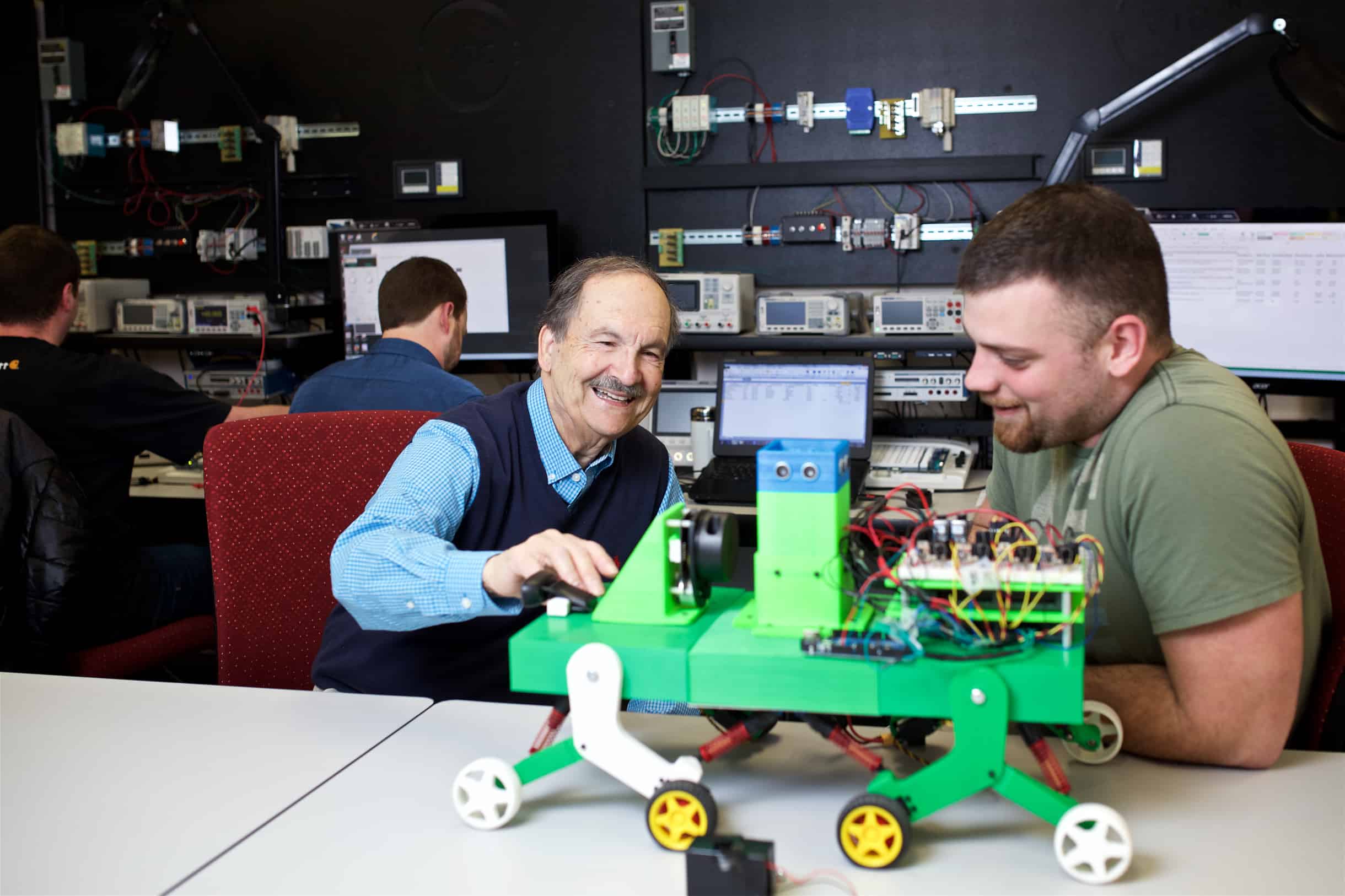Why Study Electrical Engineering Technology at Vermont State?
- Hands-on Learning: We’ll guide you from basic to advanced principles through a 1:1 ratio of classroom education and laboratory training, reinforcing the theory you’ve learned with practical experience.
- Advanced Technology: You’ll practice with the instruments, power supplies, and controllers widely used in the industry, so you’ll enter the field with the latest knowledge and skills.
- Career Preparation: Graduates from our programs have gone on to careers as electrical engineers, design engineers, lead engineers, applications engineers, management and more in the power industry, biotech, electronic manufacturing, robotics, aerospace, and numerous other industries.
- Opportunity: Whether you choose to go directly into the workforce or seek an even higher level of education, you can be certain that you have the know-how and skills to thrive.
Request Information
Sample Courses
- Sensors & Instrumentation
- Electromechanical Power Systems
- Control Systems
- Electromechanical Systems
Related Programs
Student Stories

“For me, the labs were what made everything click. You could construct a circuit based on the theory learned in the classroom and compare your math to your measurements on a DMM or scope, tweaking values and observing their effects along the way. There was also a collaborative environment in the lab, where if some folks were struggling with a concept or a specific circuit, others could jump in and provide feedback on wiring, polarity of components, et cetera.”
Trevor Best
Meet Our Faculty

Faculty







